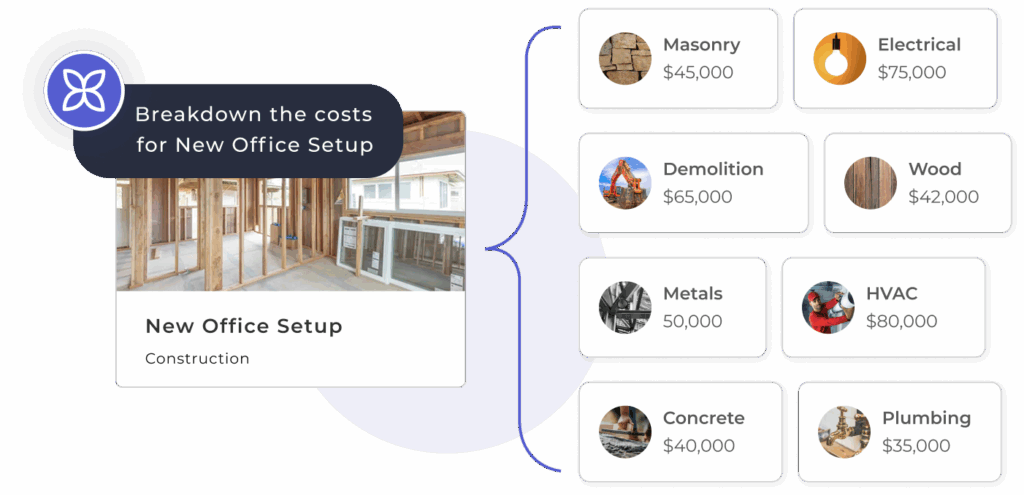The Construction to Maintenance Transition: What Changes When Projects End
The construction to maintenance transition isn’t just an operational shift—it’s deeply personal. You’ve spent months bringing someone’s vision to life through active construction. Now comes the harder part: ensuring that vision endures through long-term maintenance. This critical transition from building to preserving determines whether your project becomes a lasting legacy or a deteriorating asset.
When construction wraps, you face a choice. Walk away from a successful project, or stay engaged through the maintenance phase. Most professionals choose the former, not because they want to, but because navigating the construction to maintenance transition feels overwhelming.
The truth? Moving from construction to maintenance requires completely different thinking. During builds, you’re managing intensity—tight deadlines, focused teams, clear endpoints. In contrast, maintenance demands consistency—routine care, long-term planning, perpetual vigilance.
Your clients feel this uncertainty too. They’ve just invested significantly in their property. Now they’re wondering: Who will protect this investment when you’re gone?
Understanding the Construction to Maintenance Transition: What Actually Changes
The construction to maintenance transition represents one of the most critical phases in a building’s lifecycle. According to the Whole Building Design Guide, a predictable opening day depends on three key components: facility readiness, people readiness, and information readiness.
Construction operates in sprints. However, the transition shifts you into marathon mode. In construction, you’re completing phases by month-end. Conversely, in maintenance, you’re preserving assets for decades. Family offices managing multiple properties understand this acutely—each asset requires decades-long thinking, not project-based planning.
Furthermore, your financial model needs complete rebuilding. During construction, you’re managing a large, defined budget spent over months. In contrast, during maintenance, you’re tracking smaller, recurring expenses indefinitely. Therefore, understanding estate maintenance cost control becomes essential. A $500 filter replacement seems minor—however, fifty of them across a year? That’s $25,000 you didn’t budget for.
How Success Metrics Transform During the Transition
Success metrics flip completely during the construction to maintenance transition. In construction, success is obvious—the building stands, the renovation shines. During the transition, however, success means nothing dramatic happens. Emergency repairs don’t occur. Asset value deterioration stops. Surprise expenses disappear. Consequently, you’re now celebrated for preventing problems clients never see.
Addressing the Information Gap in Your Transition
The Whole Building Design Guide emphasizes that transitioning from construction to operations and asset management requires deliberate attention during the design and construction phases—not as an afterthought. Without proper planning, the baton pass from construction to occupancy becomes inefficient and ineffective.
Consider what gets lost in typical construction to maintenance transitions:
- System specifications scatter across emails and photos
- Vendor relationships live in someone’s phone, not your system
- Maintenance histories aren’t systematically documented
- Warranty information expires untracked
For instance, six months after completion, when the heating system acts strangely, no one remembers the installer mentioned it needed annual recalibration. As a result, that $300 service call becomes a $15,000 replacement because institutional knowledge vanished.
Why Traditional Approaches Fail the Construction to Maintenance Transition
Most construction professionals struggle because their tools weren’t built for this shift. Consider the typical smart construction management platform for luxury estates—brilliant for active builds, yet inadequate for ongoing operations.
The gap: Construction tools track completion. Meanwhile, maintenance tools must track continuity.
Asset managers managing multiple estates see these gaps multiply across properties. What was manageable for one building becomes chaos across ten. Ultimately, the post-construction management approach you implement determines whether clients remember you as someone who built something beautiful, or someone who built something enduring.
A Better Path: Purpose-Built Systems for Your Transition
EstateSpace is purpose-built and powered by AI specifically for physical asset lifecycle management—including the critical construction to maintenance transition.
How AI Workflows Bridge the Construction to Maintenance Gap
Traditional tools require manual data entry and constant updates. In contrast, EstateSpace’s AI workflows automatically:
- Capture construction knowledge as projects progress—no separate documentation phase
- Transform project data into maintenance schedules and vendor databases
- Generate predictive alerts before small issues become expensive emergencies
- Create continuity so nothing critical gets lost between phases
For project managers, EstateSpace doesn’t require switching systems. Instead, the same platform that managed your construction project now supports ongoing operations. Therefore, your project management for estates continues seamlessly into the maintenance phase.

Essential Steps for a Successful Construction to Maintenance Transition
Preparation Before Your Construction Phase Ends
Document with maintenance in mind. First, stop thinking about construction documentation as “project closeout.” Instead, start treating it as “operations onboarding.” Photograph every mechanical system with clear labels. Additionally, record vendor contact information in structured formats. Understanding property management budgeting early helps clients prepare for transition costs.
Test your handoff process. Before final completion, walk someone unfamiliar with the project through your documentation. If they can’t locate critical shutoff valves, understand system procedures, or follow maintenance schedules, your construction to maintenance transition will fail.
Critical Actions After Construction Completes
Create operating procedures, not just manuals. Estate construction project management culminates in usable procedures—seasonal preparation checklists, emergency protocols, and decision trees for common issues—not shelf-bound binders no one reads.
Moreover, establish financial oversight through monthly expense reviews, quarterly analysis, and annual capital planning. The property management budget approach you implement determines long-term profitability.
Special Considerations for Complex Transitions
Estate renovation project coordination presents unique challenges—you’re preserving historical elements while supporting modern systems. Furthermore, when managing private property management challenges across multiple estates, AI workflows help by standardizing processes, benchmarking costs, and predicting optimal service timing.
Understanding estate management beyond household operations means embracing sophisticated requirements: discreet vendor relationships, predictive maintenance, institutional-grade reporting, and meticulous asset value preservation.
The Relationship Opportunity in Your Transition Strategy
The construction to maintenance transition isn’t the end of your client relationship—instead, it’s a transformation. During construction, clients see your expertise. However, during maintenance, they experience your commitment to their long-term success.
This deeper relationship creates ongoing revenue through maintenance contracts, referrals from satisfied clients, portfolio expansion, and trust-based advisory relationships. Nevertheless, this only happens when the construction to maintenance transition feels seamless.
Common Mistakes That Undermine Your Transition
Assuming clients understand maintenance requirements. They’re shocked when you explain ongoing costs. Therefore, discuss post-completion operational requirements during construction and build maintenance budgets into financial planning early.
Treating handoff as a single event. The construction to maintenance transition is a process taking weeks or months. Consequently, start transition activities months before completion and phase knowledge transfer gradually.
Neglecting vendor relationship continuity. Systematically document vendor performance, rates, and specialties. Furthermore, include vendors in transition planning so relationships continue seamlessly.
Moving Forward with Your Construction to Maintenance Transition
The construction to maintenance transition doesn’t have to feel overwhelming. First, start by auditing your current process: How do you document projects? What happens to that information after completion? Can someone unfamiliar with your project manage maintenance effectively?
Schedule a conversation to explore how AI workflows automate routine coordination, preserve construction knowledge for maintenance teams, and create transparent client reporting. No sales pressure—just a genuine conversation about making your construction to maintenance transition smoother.
Final Thoughts
The construction to maintenance transition represents a pivotal moment for your business, your clients, and the assets you’ve created. Handle it well, and you build enduring relationships while establishing profitable recurring revenue.
You invested enormous expertise bringing someone’s vision to life. Don’t let inadequate systems undermine that achievement after completion. The estates you build deserve management as thoughtful as their construction.
That’s the promise of a properly executed construction to maintenance transition. That’s what EstateSpace enables.





